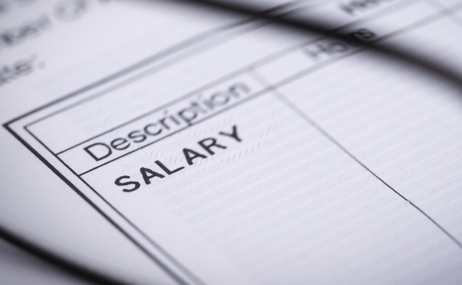Unpaid care work is a major hindrance to women empowerment – Study
 A baseline study conducted by ActionAid Ghana as part of the POWER project has shown that the burden of Unpaid Care Work (UCW) on women in Ghana is a major factor inhibiting women empowerment.
A baseline study conducted by ActionAid Ghana as part of the POWER project has shown that the burden of Unpaid Care Work (UCW) on women in Ghana is a major factor inhibiting women empowerment.
The study, conducted under the Promoting Opportunities for Women’s Empowerment and Rights (POWER) project, found that women do 10 percent more care work than men and have significantly longer workdays which leaves them little time to practice Climate Resilient Sustainable Agriculture (CRSA) or to participate in public life, political activities or engage in their own betterment.
Findings from the study, launched in Accra on Thursday, showed that a woman’s total workday on average is 9.6 hours, six hours of which is spent in unpaid care work, compared with only 5.3 hours for men.
Dr Michael Ayamga, who led the study in Ghana, said time was the most limiting constraint to women empowerment as UCW curtailed women’s ability to engage in empowering activities.
Presenting highlights of the study at the launch ceremony, Dr Ayamga said the workload on women was the highest contributor to disempowerment in the project districts and called for increased recognition of the UCW and efforts to reduce the burden on women.
According to the study findings, which used the Women’s Empowerment in Agriculture Index as well as the POWER project indicators, women in the communities were significantly less empowered than their male counterparts.
“Sixty-three per cent of women surveyed have not achieved empowerment across all five domains of empowerment,” he said, adding that this was caused by lack of access to and decision-making power on credit, workload, and minimal control of assets.
The study also found linkages between domestic violence and unpaid care work as violence was closely lined with performance of UCW.
Women in the surveyed communities however did not report violence as a problem as some saw it as normal and as their duty to perform such work.
Among other recommendations, the baseline study called for broad reduction and or redistribution of UCW and the protection of women who advocate for this in their homes and communities and also improve access to childcare and other services that would reduce women’s unpaid care work burden.
Ms Otiko Afisa Djaba, Minister Gender, Women and Children, who launched the report, expressed concern with the phenomenon of women being relegated to the status of ‘domestic servants’ performing unpaid care work saying it was time to rediscover the identity of women and their role in national and global development.
Speaking on the theme for the launch: “Unpaid Care Work, Women’s Access to Markets and Productive Resources: Lessons to inform the Planting for Food and Jobs Policy in Ghana,” she said women constituted about 80 percent of the workforce in agriculture, thus government’s commitment to improve their livelihoods through the Planting for Food and Jobs programme.
She said her Ministry would ensure the women received at least 30 percent of opportunities under the programme as well as in other developmental programmes such as the one district one factory initiative.
Ms Cecilia Wijgers, the Deputy Ambassador of the Netherlands to Ghana, sponsors of the project, commended ActionAid for the initiative saying the POWER project was in line with the Embassy’s own work on gender and fits in with the objectives of its Funding Leadership Opportunities for Women (FLOW) programme.
Referring to the findings of the baseline study, she noted “it’s very, very hard to measure these kinds of things” and urged CSOs to see the study as a call for action, as the recognition of the challenges to be tackled was very important.
She said there is the need to also promote entrepreneurship among women as a way to improve their economic development and also to partner with the private sector to create opportunities for women.
She said whereas the assertion that women did more work than men did not have any backing in the past, the study provided the evidence needed to address the issue and to get men to adjust to helping women with care work.
Mr Sumaila Abdul-Rahman, ActionAid Ghana Country Director, pledged the commitment of ActionAid to engage policy makers to integrate the recommendations of the study into national policy.
Ms Josephine Irene Uwamariya, Country Director of ActionAid Rwanda, urged government to put in place laws and policies to address issue affecting women such as violence and unpaid Care Work.
She also called on all CSOs and other stakeholders to collectively advocate and work to address the issue at national, regional and continental levels.
The POWER project is being implemented in five regions in Ghana: Nanumba North and South districts in Northern region, Talensi and Nabdam districts in Upper East, Jirapa in Upper West, Asutifi and Tain districts in Brong Ahafo and Adaklu district in the Volta regions of Ghana.
It is aimed at empowering 6,000 rural women and influence their ability to control their income through the practice of CRSA, accessing markets and recognising, redistributing and reducing the burden of unpaid care work.
Globally, it is also being implemented in Rwanda, Bangladesh and Pakistan.
Source: GNA
